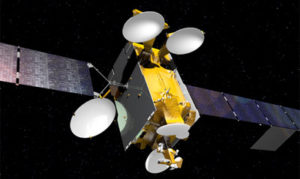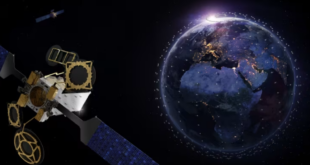
Morteza Barari, head of the Iran Space Agency and deputy minister at the Iranian Ministry of Communications and Information Technology told Mehr News Agency that ordinary Iranians, the economy, and society at large benefit everyday from Earth observation, communications, and positioning, navigation, and timing (PNT) satellites without realising it.
Speaking to Iranian media, Barari said that, “perhaps one of the most prominent aspects [of space technology in people’s lives] are the mobile smartphones that are equipped with satellite navigation systems which help people locate and navigate.”
Iran is reportedly indigenously developing a series of small satellites for Earth observation and communications, and is also supposed to have a high-resolution Earth observation and geostationary communication satellites on order from Russian manufacturers, though despite repeated announcements of their imminent launch nothing seems as yet to have been put in orbit.
“Now, Iransat-21 telecommunications satellite provides a number of services to the people,” said Barari in his interview.
Iransat-21 references the channels allotted to Iran on board the ARABSAT-6B/BADR-7 communications satellite.
Iransat-21 is now used by the Iranian network of very small aperture terminals (VSAT), as well as by Iranian banks for their Automatic Telling Machines (ATM’s) and other financial networks.
Similarly, Iran’s oil and gas industry – a critically important part of the Iranian economy – is also using Iransat-21.
“The oil platforms in the Persian Gulf are in contact with inside the country via that telecommunication satellite,” Barari added. “There are of course other telecommunications satellites provided by the private sector serving the banks and the oil ministry.”
SpaceWatch.Global has previously reported that Iran has been in discussions with French commercial satellite communications provider Eutelsat regarding the lease of one of their satellites, although nothing has since been heard about these alleged discussions.
Barari also told Iranian reporters that the Iran Space Agency and the Ministry of Communications and Information Technology intend to bridge the digital divide among poorer and rural Iranians using satellite technologies over the next year.
 SpaceWatch.Global An independent perspective on space
SpaceWatch.Global An independent perspective on space




